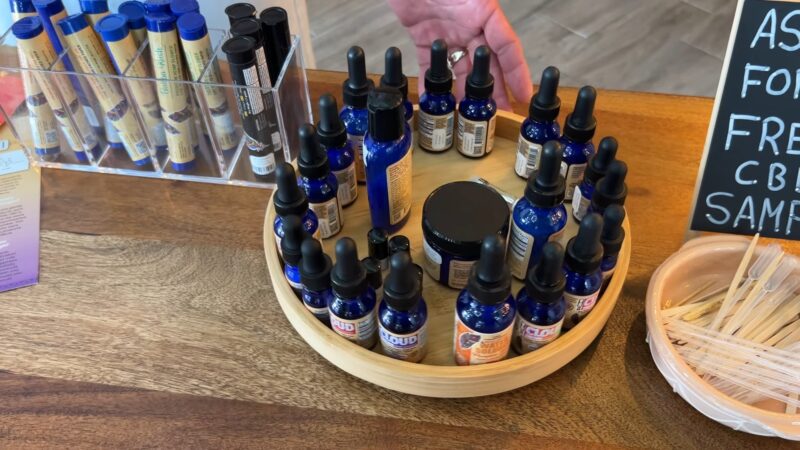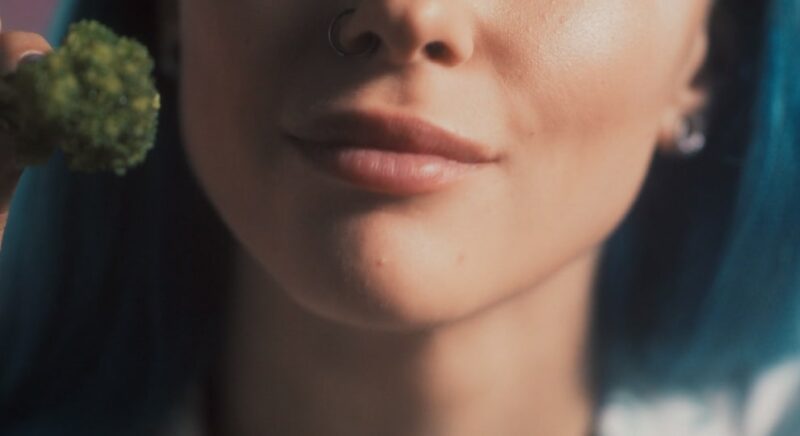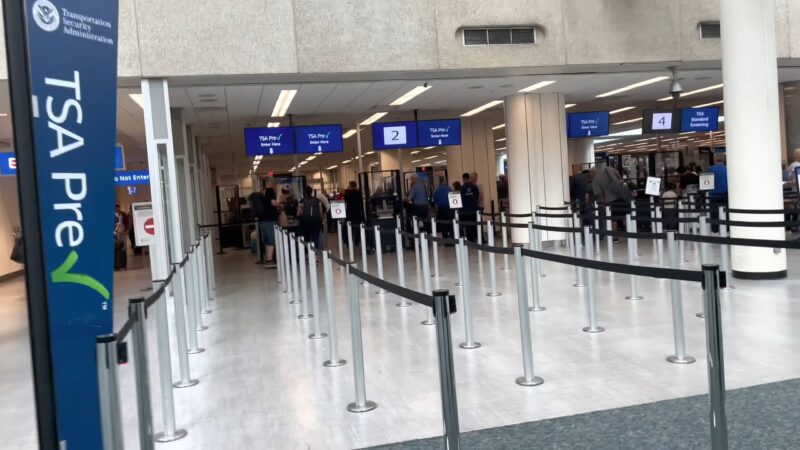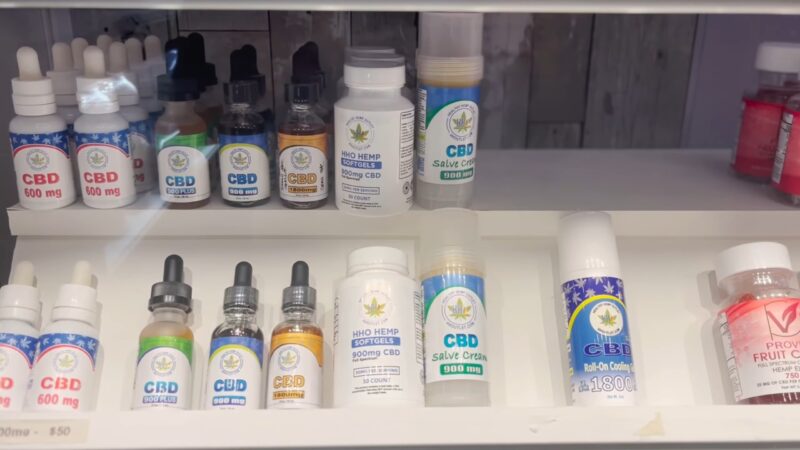The legal background surrounding CBD (cannabidiol) in Florida has evolved significantly over the past few years.
With the legalization of CBD products containing less than 0.3% THC in 2019, Florida has opened its doors to a burgeoning hemp industry.
Today, I will discuss the legalities of CBD in the Sunshine State, aiming to clarify the do’s and don’ts for consumers, travelers, and enthusiasts.
Key highlights:
- Legal Status of CBD in Florida: Readers will learn that cannabidiol products with less than 0.3% THC are legal in Florida, with specific age restrictions and labeling requirements.
- Purchasing and Travel Guidelines: The article covers the legalities of purchasing cannabidiol in Florida, including age restrictions and retailer guidelines, as well as information about traveling with CBD to Florida.
- CBD vs. Medical Marijuana: A clear distinction between cannabidiol products and medical marijuana in Florida, including access and use for medical purposes.
- Choosing Quality CBD Products: Tips on selecting high-quality cannabidiol products, understanding labeling, and ensuring products meet state and federal regulations.
- Evolving Legal Landscape: Insight into the dynamic nature of CBD regulations in Florida, the role of federal and state laws, and the importance of staying informed about future legal changes.
Is It Legal to Purchase CBD Products in Florida?

In Florida, purchasing cannabidiol products is legal as long as they contain less than 0.3% THC. This rule applies to various forms of CBD, including oils, tinctures, and edibles.
Anyone over the age of 18 can buy these products, but it’s important to note that CBD inhalants are only available to those over 21.
Retailers are required to have a Hemp Food Establishment Permit for selling pre-packaged food containing CBD or hemp extract.
Age Restrictions and Product Requirements

For CBD purchases, age plays a critical role. While the general age requirement is 18, CBD inhalants raise the bar to 21.
Moreover, all CBD products must undergo independent lab testing to confirm their THC content is below 0.3% and free from harmful contaminants.
Packaging requirements are also stringent, demanding details like a scannable barcode, batch number, and expiration date.
Can You Bring CBD into Florida on a Flight?

Travelers can bring cannabidiol into Florida, provided the products adhere to federal and state regulations—specifically, the THC content must not exceed 0.3%.
However, it’s essential to remain informed about the policies of your airline and the TSA regarding CBD products.
Will Cannabidol Use Affect Drug Tests in Florida?
CBD itself typically does not show up on drug tests. However, since some cannabidiol products may contain trace amounts of THC, there’s a slim chance it could influence test results, especially if used frequently or in large quantities.
Regulatory Landscape in Florida
- Oversight and Regulations by the Florida Department of Agriculture and Consumer Services (FDACS): FDACS plays a pivotal role in regulating the cultivation, consumption, and distribution of CBD and hemp products in Florida. This includes licensing for producers and ensuring products meet the required standards before they reach consumers.
- Legal Developments and Key Legislation: The 2018 Agricultural Improvement Act and Senate Bill 1020 were crucial in legalizing hemp as an agricultural commodity in Florida. Furthermore, House Bill 7107 shifted certain drug products containing cannabidiol from Schedule 1 to Schedule 5 drugs, reflecting a more lenient stance towards CBD.
The Nature of Regulations in Florida
Keeping Up with Changes in the Hemp Industry
The CBD and hemp landscape in Florida is dynamic, with potential changes and updates to regulations.
Consumers, producers, and retailers need to stay informed about the latest developments to ensure compliance and make informed decisions.
The Purchase and Use of CBD in Florida
When purchasing cannabidiol in Florida, it’s crucial to verify that products are compliant with state regulations.
This means ensuring that products are independently tested, labeled correctly, and purchased from licensed retailers.
For online purchases, reputable retailers often follow the 18-year-old age requirement and provide certificates verifying THC content under 0.3%.
Restrictions and Guidelines for Retailers
Retailers in Florida selling cannabidiol products must adhere to specific guidelines.
Obtaining a Hemp Food Establishment Permit is mandatory for those selling pre-packaged food containing CBD or hemp extract.
Dispensaries selling CBD should be reputable and comply with state regulations, including proper licensing and product testing.
CBD and Medical Marijuana in Florida

Differentiating Between CBD and Medical Marijuana
While cannabidiol products with less than 0.3% THC are legal for general use in Florida, the state also legalized smokable marijuana with regulated THC content for certified medical patients in 2019.
This distinction is crucial for consumers to understand, especially in the context of legality and use.
Access to Medical Marijuana in Florida
Patients with a medical marijuana card can access higher THC content products through licensed dispensaries.
These dispensaries are regulated differently from general CBD retailers and cater specifically to the medical community.
Practical Tips for Consumers in Florida
How to Select Quality Products
Choosing high-quality CBD products in Florida involves checking for independent lab testing results, knowing about the product labeling, and verifying the THC concentration.
Consumers should also consider the reputation and compliance of the retailer or dispensary.
The Benefits and Uses
CBD is known for its potential health benefits, including pain relief, anxiety reduction, and improved sleep quality.
However, it’s important for consumers to research and understand the uses and limitations of CBD products, as well as consult healthcare professionals when necessary.
Legal Perspectives and Future Trends
- The Impact of Federal and State Laws on Legality: While Florida has its specific regulations, federal laws also play a significant role in shaping the legal landscape of CBD. Knowing both state and federal regulations is crucial for navigating the legality of cannabidiol use and distribution.
- Anticipating Future Changes in Regulations: The CBD industry is rapidly evolving, and with it, the legal framework is likely to undergo changes. Staying informed about legislative updates and industry trends is essential for both consumers and businesses in the CBD market.
Key Takeaways for Florida Residents and Visitors
For Residents
Residents of Florida must understand their rights regarding CBD use, including the legal age for purchase and the types of products allowed.
Equally important is awareness of responsibilities, such as ensuring purchases are made from licensed retailers and products meet state guidelines.
For Visitors
Visitors to Florida should be aware of the state’s CBD regulations, especially if they plan to bring cannabidiol products into the state or purchase them while visiting.
Knowing the nuances of Florida’s laws will help ensure a hassle-free experience for those seeking to use CBD during their stay.
FAQs
Are there any specific types of CBD products that are illegal in Florida?
In Florida, these products containing more than 0.3% THC are illegal unless they are part of the state’s medical marijuana program.
Additionally, food and beverages infused with cannabidiol are subject to specific regulations.
Can a business in Florida grow its own hemp for CBD production?
Yes, but they must obtain a cultivation license from the Florida Department of Agriculture and Consumer Services (FDACS) and comply with state regulations.
Are there any counties or cities in Florida that have different CBD laws?
Cannabidiol laws are generally consistent across Florida, but local ordinances may add regulations, especially regarding the sale and public consumption of CBD products.
Can I use CBD in public places in Florida?
While using CBD in public is not explicitly illegal in Florida, individual establishments or local ordinances might have restrictions, particularly against smoking or vaping.
Is it legal to give CBD products to minors in Florida?
Generally, cannabidiol products should not be given to minors under 18 without consent from a parent or guardian.
The legal implications can vary, especially with products like CBD inhalants, which have stricter age limits.
Do employers in Florida have the right to prohibit CBD use among their employees?
Employers in Florida can set their own policies regarding cannabidiol use, especially if they have concerns about drug testing or workplace safety.
Employees should check their company’s policy.
Final Words
Florida’s CBD landscape is dynamic and multifaceted, influenced by legal, economic, and social factors.
It doesn’t matter if you’re a resident, visitor, or stakeholder in the CBD industry, staying informed and compliant with current regulations is key.
As the industry continues to grow and evolve, so too will the legal frameworks governing it, reflecting the ongoing journey of CBD in Florida and beyond.
